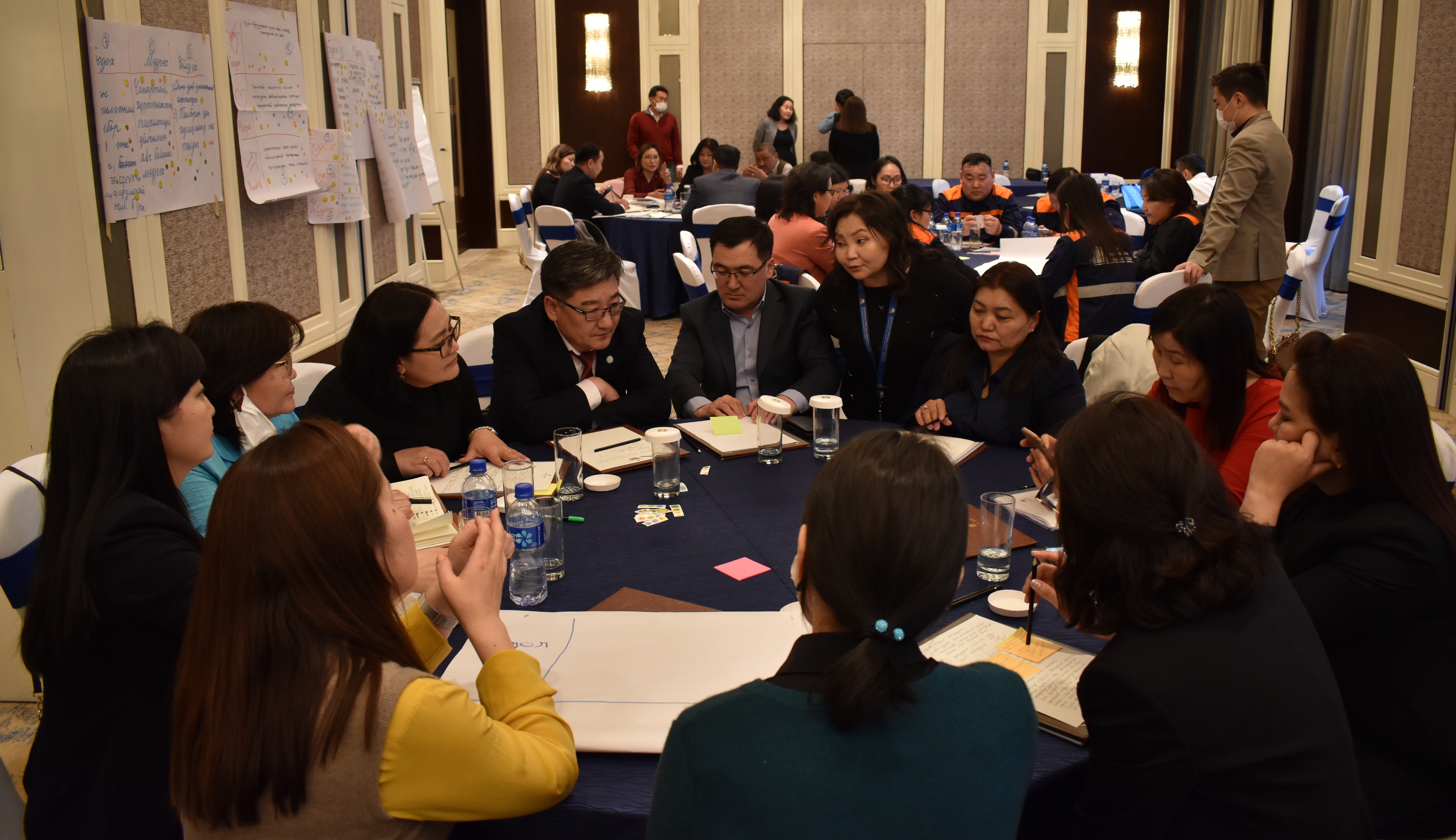
Ulaanbaatar city, March 31, 2022 - MCA-Mongolia will be implementing the Public Awareness and Behavior Change Sub-Activity under the Water Sector Sustainability Activity, one of the three main activities of the Mongolia Water Compact. The objective of the Public Awareness and Behavior Change Sub-Activity is to improve awareness and understanding of the value of water resources and the actual costs of water services, thereby to facilitate the acceptance of the cost-reflective tariffs of water services. In order to inform the overall framework of the behavior change interventions, MCC and its consultant companies conducted a research by analyzing the select data from the Willingness to Pay (WTP) study of the Cost Recovery Technical Assistance, which are related to consumer behaviors, through the social and behavior change lens.
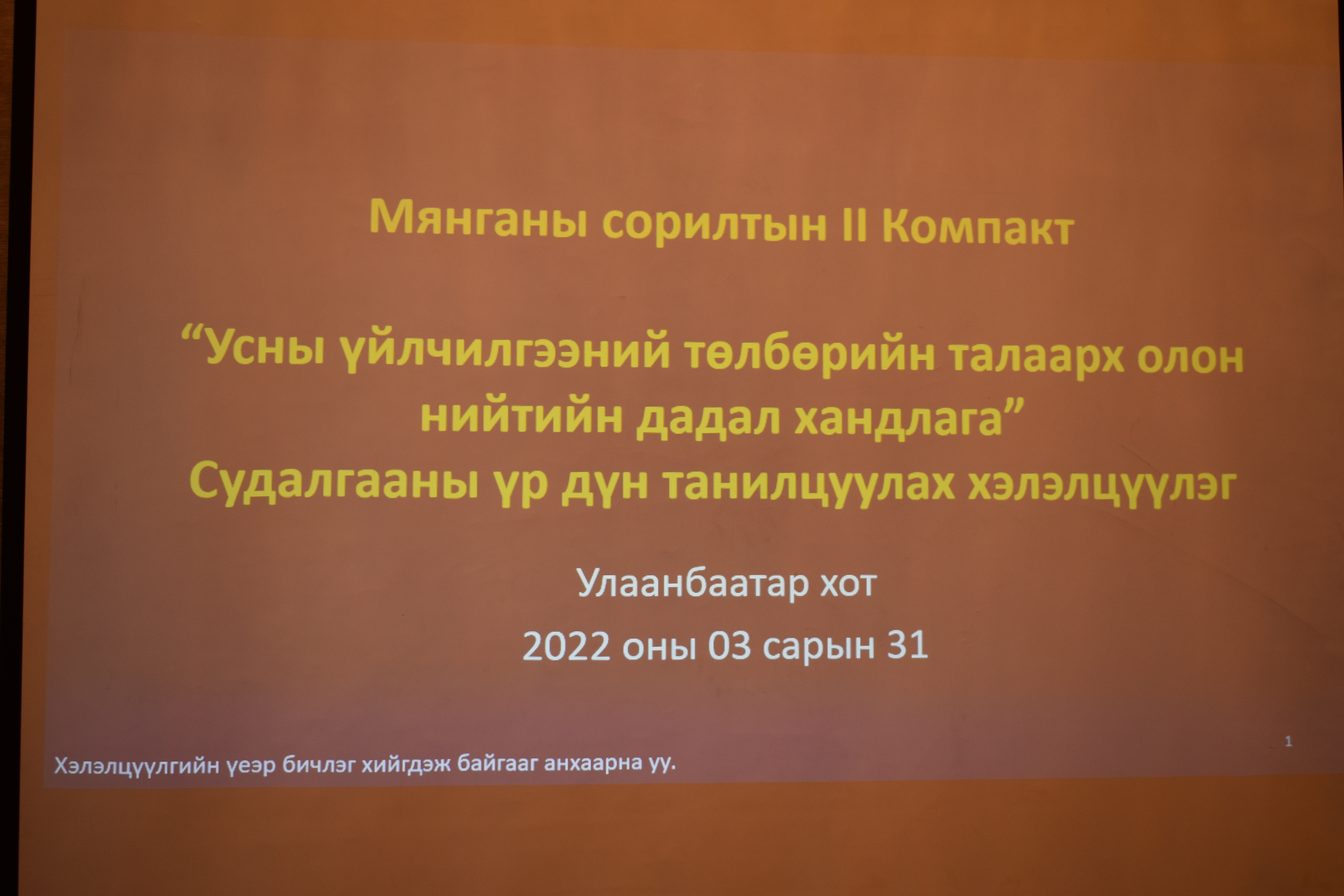
To share results of the research findings and to begin discussion of the research implications for planned investments of the Mongolia Water Compact, MCC and MCA-Mongolia co-organized a workshop among key stakeholders, including the Water Agency, Ministry of Labor and Social Welfare, Agency for Fair Competition and Customer Protection, Municipality of Ulaanbaatar, Tuul River Basin Authority, Water Services Regularity Commission, Ulaanbaatar City Water Supply and Sewerage Authority (USUG), Housing and Public Utilities Authority of Ulaanbaatar City (OSNAAUG), and representatives of private kontors. More than 50 participants attended the workshop.
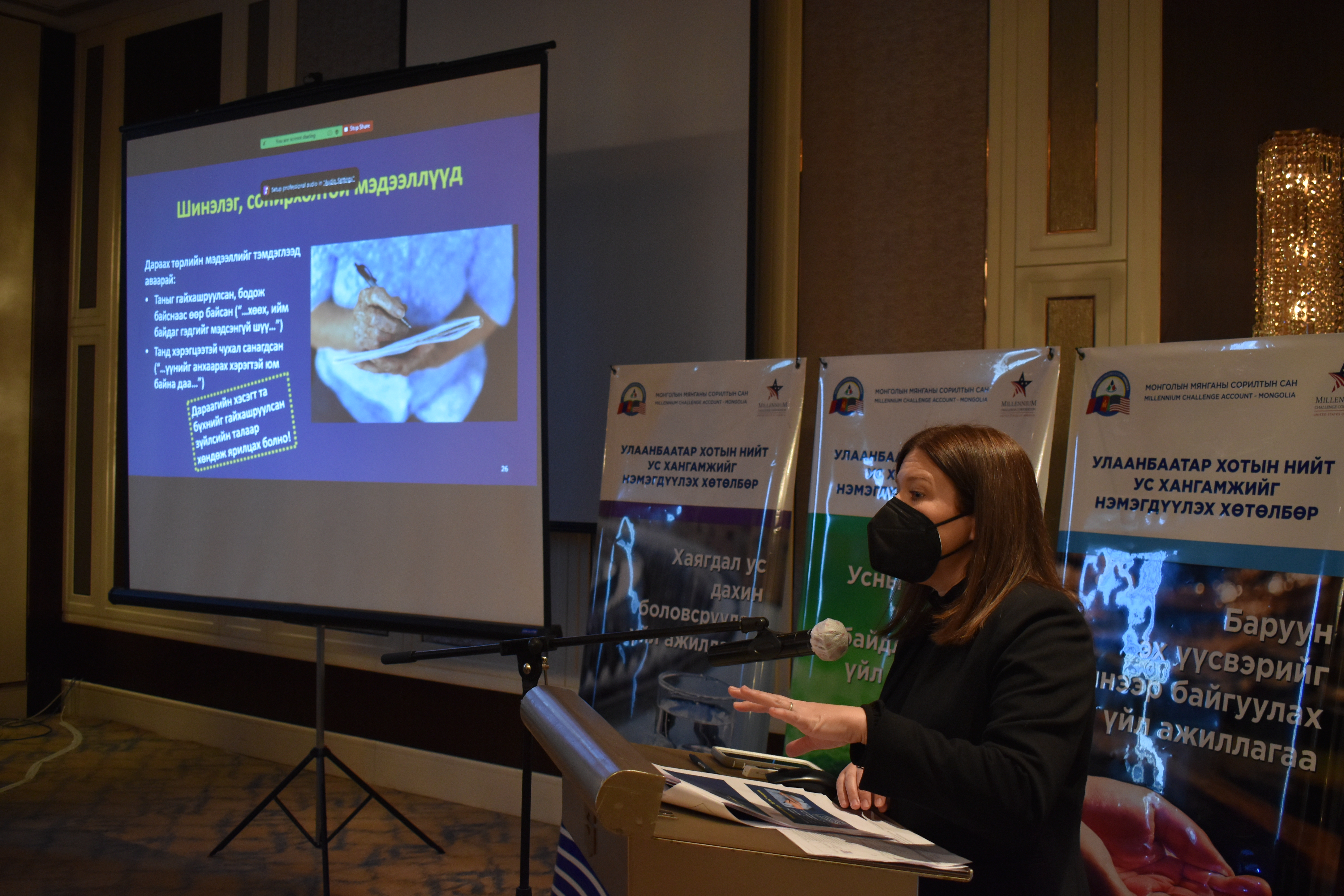
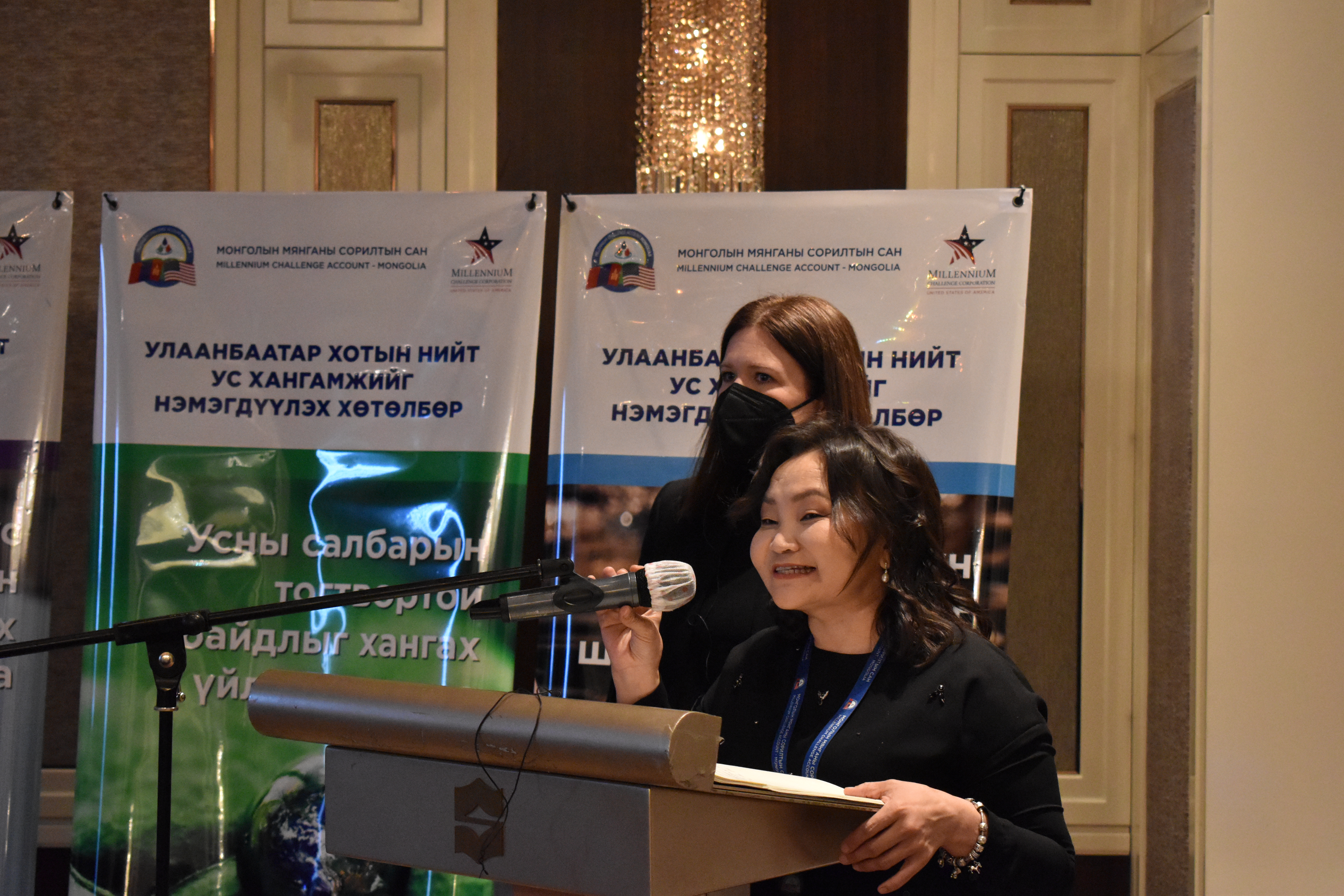
In the first half of the workshop, Unurjargal Lkhanaa, Director of Water Sector Sustainability Activity at MCA-Mongolia, presented on the Water Compact, the Sustainability Activity, the Public Awareness and Behavior Change Sub-Activity and its linkages to the Cost Recovery Sub-Activity and the Cost Recovery Plan. Alison Montgomery, Director of Social Behavior Change at MCC, presented on the MCC’s SBC model that focuses on the constructs of C-O-M (Capability - Opportunity - Motivation), why the SBC matters for the Compact, the findings of the WTP study analysis through a SBC lens as well as the implications of the findings on the SBC interventions. After the presentations, participants asked questions of interest to them and received responses. Participants were then divided into groups and discussed and shared their reflections on the study findings.
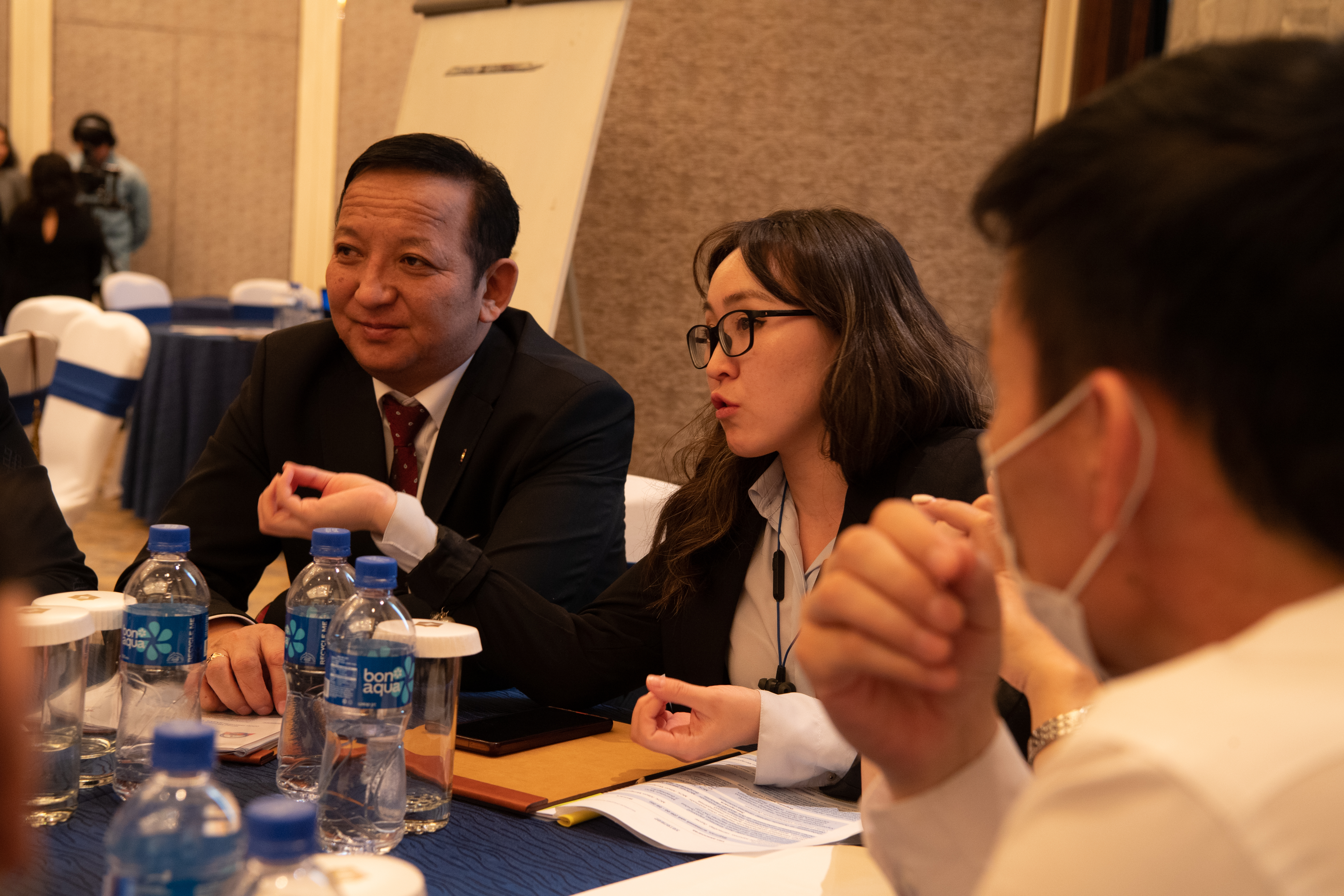
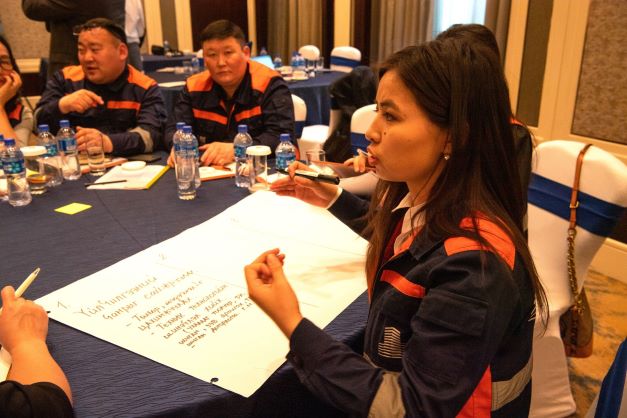
In the second half of the workshop, a panel discussion on the consumer voices was held, with representatives of apartment and ger area consumers, who shared their experience with water services and bill payments. After the panel discussion, participants worked as groups on defining the vision of the success with the Think-Feel-Do model. Afterwards, stakeholders divided into their respective organizations, discussed the implications of the vision, regarding what roles they play in how consumers think, feel and do about water services and what they might need to do differently to achieve the vision.
Throughout the workshop, stakeholders actively participated in the discussion, learnt different challenges and perspectives specific to each organization, and brainstormed ideas to solve their common challenges together. Participants expressed their appreciation to MCC and MCA-Mongolia for organizing the workshop and starting collective dialogue on important issues of the water sector.
###
The Government of Mongolia and the U.S. Millennium Challenge Corporation signed the $350 million Mongolia Water Compact on July 27, 2018. The Compact is funding major infrastructure projects, including the construction of new wellfields and two large plants - an Advanced Water Purification Plant and Wastewater Recycling Plant which will be the first of their kind in Mongolia. In addition, the Compact will invest in policy measures to create a financially and environmentally sustainable future for the water sector of Ulaanbaatar. By 2026, the water system in Ulaanbaatar will have been expanded to deliver 80% more drinking water, allowing for the city’s future expansion.
